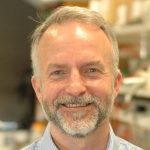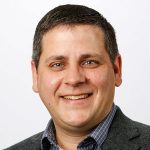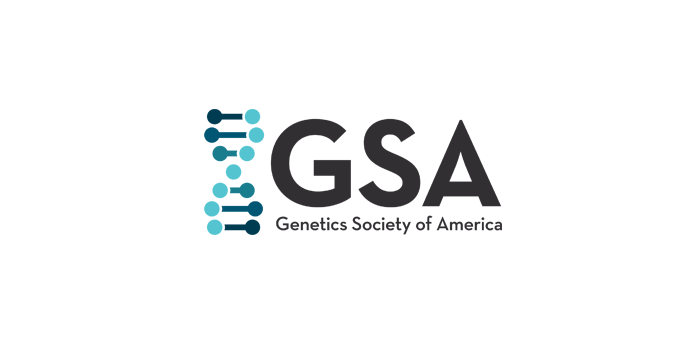We are pleased to announce the election of five new leaders to the GSA Board of Directors:
2020 Vice-President/2021 President
Hugo Bellen
 Professor, Molecular and Human Genetics, Neuroscience, and Developmental Biology, and Investigator, Howard Hughes Medical Institute, Jan and Dan Duncan Neurological Research Institute, Baylor College of Medicine
Professor, Molecular and Human Genetics, Neuroscience, and Developmental Biology, and Investigator, Howard Hughes Medical Institute, Jan and Dan Duncan Neurological Research Institute, Baylor College of Medicine
Hugo Bellen is a Drosophila geneticist who has led the development of numerous new genetic tools for investigations in all areas of biology. His lab studies mechanisms that underlie neuronal development, function, and neurodegeneration. He leads the Model Organism Screening Center (MOSC) of the Undiagnosed Diseases Network, which assesses the impact of novel human variants, as well as the Drosophila Gene Disruption Project, a community resource that so far allows manipulations of more than 70% of all fly genes.
He strongly believes that genetic model organisms will continue to contribute vast amounts of knowledge to our understanding of the human, animal, and plant world, yet our community has not sufficiently capitalized on our achievements to garner support at the political level or in funding agencies. He believes it is imperative that we advocate for education related to the use and power of genetic model organisms by increasing both the accessibility and quality of educational resources.
Treasurer (2020-2022)
Michael Buszczak
 Professor, E. E. and Greer Garson Fogelson Scholar in Medical Research, Department of Molecular Biology, and Center for Regenerative Science and Medicine, The University of Texas Southwestern Medical Center
Professor, E. E. and Greer Garson Fogelson Scholar in Medical Research, Department of Molecular Biology, and Center for Regenerative Science and Medicine, The University of Texas Southwestern Medical Center
Michael Buszczak studies the unique biology of germ cells, using a variety of genetic, molecular, biochemical, and live-cell-imaging techniques. Currently, his group is focusing on how germ cells regulate the translation of their transcriptomes, interact with their somatic cell neighbors, and preserve the integrity of their genomes. They mainly use the fruit fly Drosophila melanogaster but have active collaborations with members of the worm, zebrafish, and human genetics communities.
As Treasurer, Buszczak will make every effort to promote the financial security of the GSA for years to come, so that our Society can continue to thrive and carry out its important missions, which include advocating for funding of model system research, providing professional development resources and opportunities for students, fellows, and early career scientists, sponsoring scientific meetings, and promoting scientific understanding within the public domain.
Directors (2020-2022)
Irene Miguel-Aliaga
 Professor of Genetics and Physiology, Imperial College London and Genes and Metabolism Section Chair, MRC London Institute of Medical Sciences, United Kingdom
Professor of Genetics and Physiology, Imperial College London and Genes and Metabolism Section Chair, MRC London Institute of Medical Sciences, United Kingdom
Irene Miguel-Aliaga studies the plasticity of adult organs; how and why organs that we commonly regard as fully developed change in size and/or function in response to environmental or internal challenges. Her group uses the intestine and its neurons to explore these questions. They investigate how an organ senses its internal milieu and the environment, how its adult progenitors respond by either maintaining or resizing the organ, and how its different cell types communicate to achieve coordinated, organ-level remodeling. Her group works with Drosophila, mouse, and humans.
Miguel-Aliaga hopes to contribute to GSA’s mission by fostering links with emerging (or re-emerging) disciplines, such as biophysics, bioengineering or physiology, striving for a more inclusive and diverse genetics community, and increasing the Society’s engagement with the international genetics community.
Oliver Hobert
 Professor, Department of Biological Sciences, Columbia University, Investigator, Howard Hughes Medical Institute
Professor, Department of Biological Sciences, Columbia University, Investigator, Howard Hughes Medical Institute
Oliver Hobert works on understanding the genetic programs that generate the astounding diversity of cell types in a nervous system. His group studies this problem using C. elegans as a model system. They are also interested in the genetics of neuronal circuit formation during development and how nervous system development differs between the two sexes of the worm. They have also invested efforts in generating tools and technology that enable and facilitate genetic analysis.
Hobert is excited to contribute his experience to serve the GSA as a Director and believes the Society should take an active role in helping new model system communities to establish themselves (e.g. via providing funding for meetings).
Steven Munger
 Assistant Professor of Systems Genetics, The Jackson Laboratory
Assistant Professor of Systems Genetics, The Jackson Laboratory
Steven Munger combines advanced computational methods with experimental validation techniques in high-resolution genetic mapping populations—an integrative approach called ‘systems genetics’—to elucidate the gene regulatory architecture governing cell fate decisions during early development and tissue homeostasis in adulthood. His research takes advantage of the emerging Diversity Outbred (DO) and Collaborative Cross (CC) mouse populations, which are complementary reservoirs of natural genetic perturbations that segregate high genetic diversity with a balanced population structure ideal for high-resolution genetic mapping. These populations allow Munger and his group to characterize the effects of genetic variation on multiple layers of gene regulation and infer predictive network models underlying cell fate decisions.
As a Director, Munger hopes to help grow, develop, and support our next generation of leaders and seeks to expand the reach and impact of Society journals and our influence on science-related public policy.































